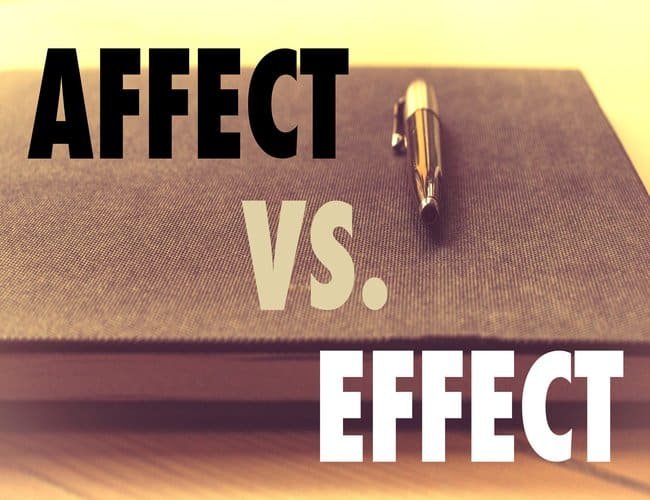If you’ve ever paused mid-sentence, unsure whether to write affect or effect, you’re in good company. These two slippery words have confused countless writers, students, and even seasoned professionals. At a glance, they seem interchangeable. But just beneath the surface lies a distinct difference that can change the meaning of your sentence entirely.
Let’s break it down once and for all—and yes, you will come out the other side more confident.
The Classic Rule: Verb vs. Noun
The most important—and most reliable—rule you need to remember is simple:
Affect is usually a verb.
Effect is usually a noun.
That’s it. Most of the time, if you stick to this rule, you’ll be in the clear.
Let’s look at that in action:
- The storm affected the power lines.
Here, affected (verb) shows what the storm did—it caused a change. - The power outage was a direct effect of the storm.
In this sentence, effect (noun) refers to the result of the storm’s impact.
Still unsure? When in doubt, ask yourself this:
Is the word showing an action or a result?
If it’s an action, you want affect. If it’s a result, go with effect.
Real-World Examples: From Classrooms to Coffee Shops
Let’s say a child is playing peacefully when someone starts blaring loud music.
- The noise affected the child’s mood. (It changed or influenced it.)
- The effect was immediate: tears and a hasty exit. (The result of the noise.)
Or picture this:
- Leroy was affected by the medication’s harsh reaction.
- The side effect was a rash that refused to go unnoticed.
Simple, right? But hold on—English loves exceptions.
The Curveball: When Effect Is a Verb
Although rare, effect can moonlight as a verb. In this case, it means to bring about or to cause something to happen—a little more powerful and deliberate than simply affecting something.
Example:
- She effected major policy changes during her tenure.
This doesn’t just mean she influenced change—she made it happen.
Compare that to:
- She affected the team’s morale with her speeches.
Here, she influenced how people felt, but she didn’t necessarily bring about a systemic shift.
One way to remember this? Effecting change is more like initiating a full-blown renovation, while affecting change is like rearranging the furniture.
Affect’s Hidden Meaning: Pretending to Be Something You’re Not
Things get even more interesting when you consider the less common uses of these words. Affect can also mean to pretend or put on a false display—a totally different animal from the influence-based verb we just discussed.
Enter: affectation (a noun).
Example:
- Jason’s affectation of confidence didn’t mask his trembling hands.
He was affecting confidence (putting on a show), but his physical reactions betrayed the truth.
- One unexpected effect of his nervousness was a sudden squeaky voice.
Here we return to effect in its classic noun role: the consequence of his inner turmoil.
Final Thoughts: Precision in Every Word
Let’s face it—affect and effect are close cousins, and their overlapping themes of change and consequence make them easy to confuse. But with a little practice, you can make the right choice without hesitation.
Remember:
- Affect = action (verb)
- Effect = end result (noun)
- Effect (verb) = to make something happen (rare)
- Affectation = fake behavior
So, the next time you’re drafting an email, writing a story, or polishing a paper, take a moment to double-check your word choice. With the right grammar tools, you’ll not only say what you mean—you’ll mean what you say.
And that’s a powerful effect worth aiming for.


